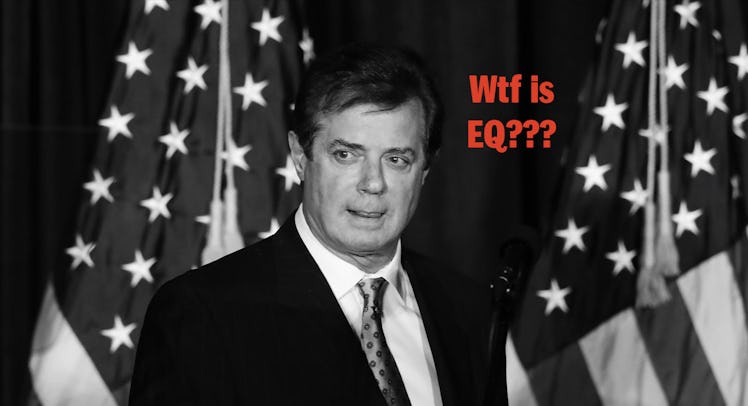Paul Manafort, Michael Cohen and the Friendless Men of the Trump White House
Politics aside, the current administration offers an example of what’s wrong with American men: the inability to develop real and lasting relationships.

Former Trump campaign manager Paul Manafort found himself on trial this week, facing charges of fraud and obstruction of justice. As Manafort mounts a defense, we’ll likely see very few of his former buddies stand by him. Why? Because the group of men that ran Donald Trump’s presidential campaign have spent the last two years engaged in Human Centipede-level backbiting and Game of Thrones-level castle intrigue. The public nature of these clashes has made it clear that those nearest to Trump have very complicated relationships — in the middle school sense of the word “complicated.” Politics aside, this is, to borrow an expression, sad. One must feel a patronizing twinge of sympathy for the lonely men who orbit around America’s lonely president. They just can’t seem to maintain friendships.
Consider the case of Trump lawyer, ex-confidant, and post-hoc pimp Michael Cohen. He loved Steve Bannon, then he didn’t. He was a fan of Anthony Scaramucci before he wasn’t. He was a strong deputy until he bit the hand that tried to feed him to federal prosecutors. Cohen, like Manafort, is in need. And he seems to have few friends. Indeed.
This isn’t simply a problem contained to the sycophant class. It’s a dude problem. Researchers over the last two years have been sounding the alarm on male isolation. And that’s not entirely because scientists really want more people to come to their barbecues. Evidence suggests that men who don’t have enduring relationships face health consequences. Feeling lonely and isolated? One study from Brigham Young University suggests you may have a 26 to 32 percent increase in the possibility of premature death. Even worse, you might end up looking like Steve Bannon.
As men, we need to really take stock of our relationships. I mean, my own life is littered with intense friendships with men that burned for a moment before being lost to a series of conflicting events or just plain thoughtlessness. This is natural, of course. People change. But people who change out their social circles in entirety suffer for it because they end up with surface level relationships. After all, building relationships with other men requires not just vulnerability and empathy, but time. It’s quick in a foxhole, but slow in an office. Making friends also typically requires a plan to do so and the emotional intelligence to see that plan through and maintain the relationship on the other side.
This is where Trump’s minions seem to fall short.
Look: Men aren’t necessarily hard-wired for emotional intelligence. This is likely particularly true of men who eagerly claim to be the smartest people in the room. The smartest people in the room are not always the people with high EQs. To the contrary.
It makes me think of Frank Capra’s holiday classic It’s a Wonderful Life, wherein Jimmy Stewart is challenged to understand what a successful life really looks like. We know what it looks like for the film’s villain Henry F. Potter: the accumulation of money, power, and prestige above all else. Stewart’s George Bailey, meanwhile, wants travel and adventure. He wants to be independent and strong. But, at the end of the day, his strength is his ability to build lasting connections. This is what saves him. The angel is right: “No man is a failure who has friends.”
The opposite statement, “No man is a success who doesn’t have friends,” is almost certainly true as well. After all, the failure is so profound as to trigger biological consequences.
So, should we think of the men standing trial as a failure for not succeeding at cultivating their alliances or inspiring genuine affection? It’s tempting to say no and find them not guilty on the grounds of a sort of power-hungry insanity, a belief that they’d make friends after climbing the ladder to the next level. But let’s not let them off the hook (or, god forbid, emulate them). Guilty. Guilty. Guilty.
It feels weird and backwards to feel sorry for men so close to power. But there it is. That’s the state of things. Whether or not these men are thrown in jail, they’ll still wind up sentencing each other to lovelessness and loneliness. I wouldn’t wish that on my worst enemy.
This article was originally published on